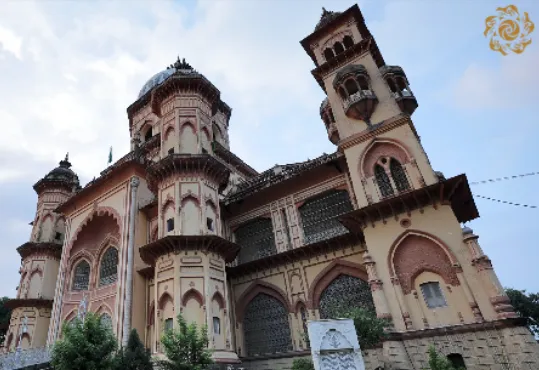The Raza Library, also known as the "Book Taj Mahal," is situated in Rampur (Uttar Pradesh, India) and is a treasure trove housing thousands of valuable manuscripts in Sanskrit, Arabic, Persian, Turkic, Pashto, Urdu, Hindi, and other languages. It boasts a large collection of copies of the Quran, albums of miniatures, and examples of Islamic calligraphy. The library contains rare printed and periodical publications, coins, archaeological artifacts, particularly Kushan terracotta, and other works of art. Undoubtedly, all this wealth is a precious gift to the world from the Nawabs of Rampur. The library was founded as part of the royal treasury at the end of the 18th century by Faiz Allah Khan (r. 1774–1794), the first Nawab of Rampur, concurrently with the construction of the Rampur estate itself. In 1957, the library was moved to the magnificent building Hamid Manzil – the "Book Taj Mahal," where unique manuscripts from various eras are still preserved today. Among them is the rarest "Diwan" of Emperor Babur with rubaiyat and date inscribed in his own hand, certified and signed by Bayram Khan and Emperor Shah Jahan.

You can learn more about the topic in the book-album "Literary legacy of Uzbekistan in the Collection of the Rampur raza Library" (volume XXXIII) in the series "Cultural legacy of Uzbekistan in the Collections of the World".
The main sponsor of the project is the oilfield services company Eriell-Group.
